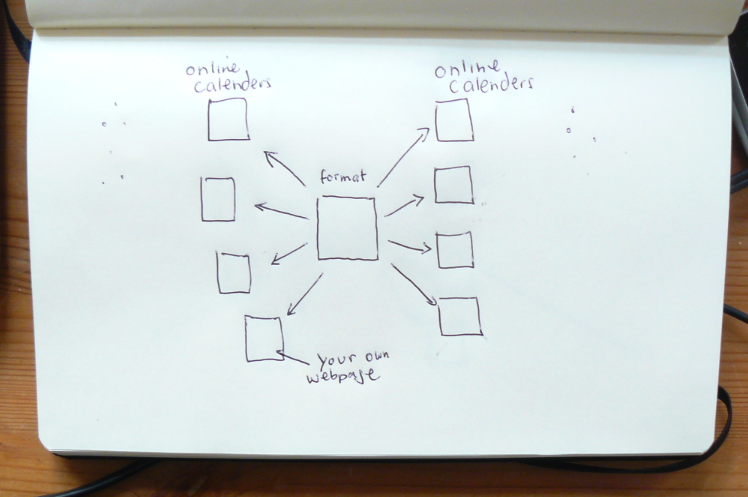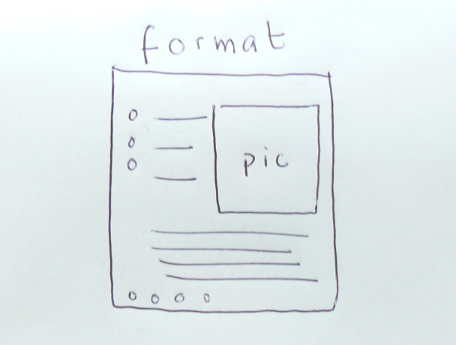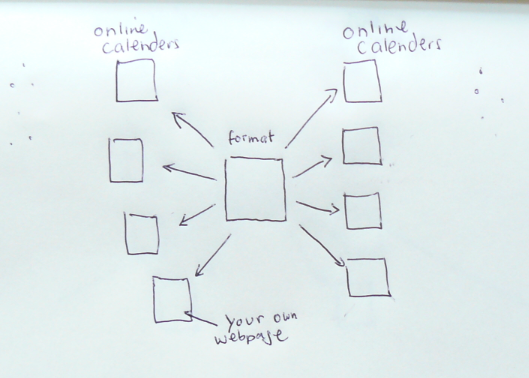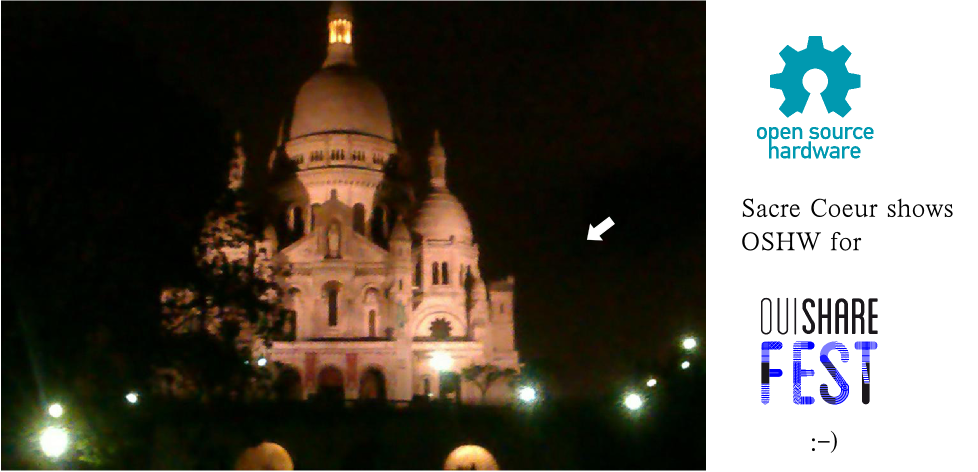Decentralization Explained: An Open Event Calender System
(en;de)
(This post is a part of the OSHW-Documentation Project)
At OuiShare Fest i discussed with Josef Kreitmayer an online event calender. I post a sketch of our idea here to explain how a decentralized – shareconomy – web tool could look like and work. Decentralized systems are important for the whole open source hardware world so there is my reason to do this. The idea is up for grabs. As an part time event organizer i am really in need of such a system but not interessted in building it. So please dear startup pioneers …
The Problem
Event-organizers need to reach out to people let them know about their event.
People are searching for interessting events to attend to. There are different online event calenders they can use depending on what their interests are.
For the event-organizer this is a problem. He has to create entries in online calenders. But which one is the right? Facebook, couchsurfing, meetup, local platforms like in berlin the umweltkalender, city, prince …, mails to blogs …? It costs a lot of time to present an event in different calenders.
The calenders compete for events as well as for people using the calender to get informed. All of this is not very smart and consumes a lot of energy and time.
The Solution
The solution could be a form – a certain document – for an event. Event-organizers fill in all the informations about the event (where, what, when, a picture, links etc.) and upload the document to their webpage. There it gots presented/displayed within the style of the webpage. The form should be an open-souce format.
The form is machine readable (somewhat like json?). So online event calenders can crawl by and collect the document automatically and display it within the style of their webpage. No need to address them all manually.
An open gateway system. RSS like.
Easy to monetize
This is easy to monetize for all actors involved.
The event-creators save a lot of time and money and get attention and an audience and sell tickets for example.
The online-calenders compete for views/users and not for entrys anymore. They can monetize their attention through ads by or building services around presenting events or being experts for events (consulting around events, special filtering).
They is also the possibility that they charge event-creators for displaying and by that advertising the events. The amount would depend on the number of views or clicks. Just a little bit like google ads works. Event-organizers aggree to the procedure by checking a box in the form, maybe they can create a list of online-calenders they are willing to collaborate with in this way.
And their in these transactions is the business model for the platform-owners – the people building and maintaining the format/decentralized platform: They manage the transactions and keep a share. The form and platform would need to be open source to maximize the use, spreading and adaptability within different webpages. The platform owners could also provide a website where event-creators without an own webpage can host or create original event forms.
Everybody is happy.
So much for the idea. It is easy and fun to invent it further yourself.
My Future of the Web
Decentralized solutions like this are necessary for many different fields – blueprints for example. They are the future for a free web and world. And i hope we will see a lot of them in the next years.
Ps. If you wanna create something like this, feel free to reach out for more ideas from our side.
(This is part of the Open Source Hardware Documentation Project)



